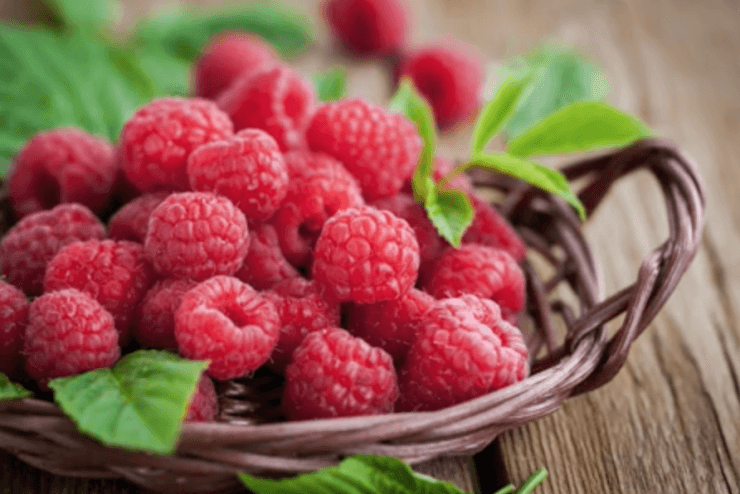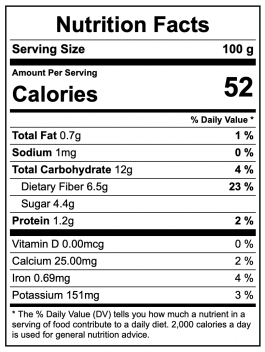
Delicious ripe raspberries

Delicious ripe raspberries
The water content of raspberries is around 85%—the other 15% consists mainly of carbohydrates and fiber. Raspberries are a good source of fiber, providing about 8 grams per cup. With 14.7 grams of carbohydrates in a cup of raspberries, they have only 6.7 grams of net digestible carbs per serving. Raspberries are also unlikely to raise blood sugar levels.
Here is the nutrition information for 100 grams (about a half cup) of red raspberries:

Here is the portion of minimum daily uptake for these compounds:
Calcium: 2%
Vitamin D: 0%
Iron: 4%
Potassium: 3%
The main plant compounds in raspberries are:
- Anthocyanins. Anthocyanins are flavonoid compounds that are responsible for the bright red color of red raspberries. They have been studied for their many health benefits and are found in particularly high levels in raspberries.
- Ellagitannins. Ellagitannins are a more complex form of ellagic acid, a type of polyphenol rich in healthy antioxidants. Raspberries have the highest amount of ellagic acid compared to other foods.
- Quercetin. This flavonoid has been shown to contribute to heart health and protect against cancer and neurodegenerative diseases.
- Vitamin C. This powerful nutrient may include protection against immune system deficiencies, cardiovascular disease, prenatal health problems, eye disease, and even skin wrinkling.
Did you know all these nutrition facts about raspberries? Please tell us what you think.




Are there any nutritional facts on yellow or other raspberries (that aren’t red)?